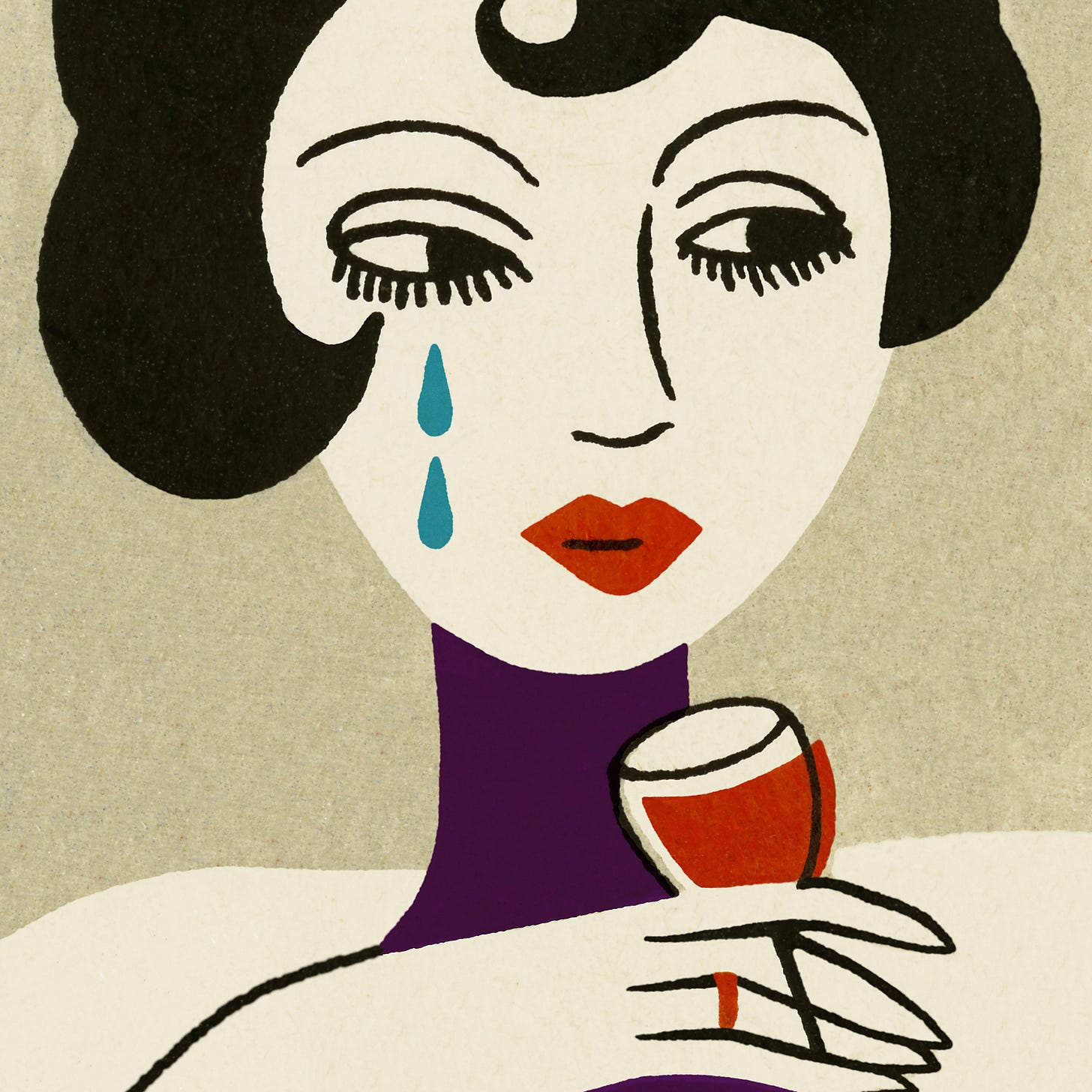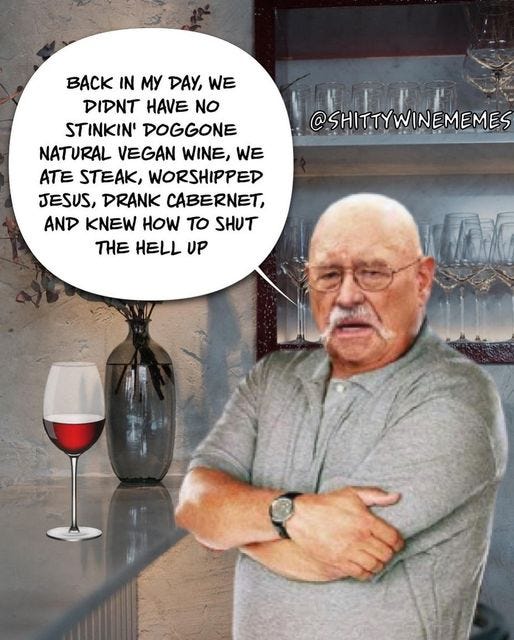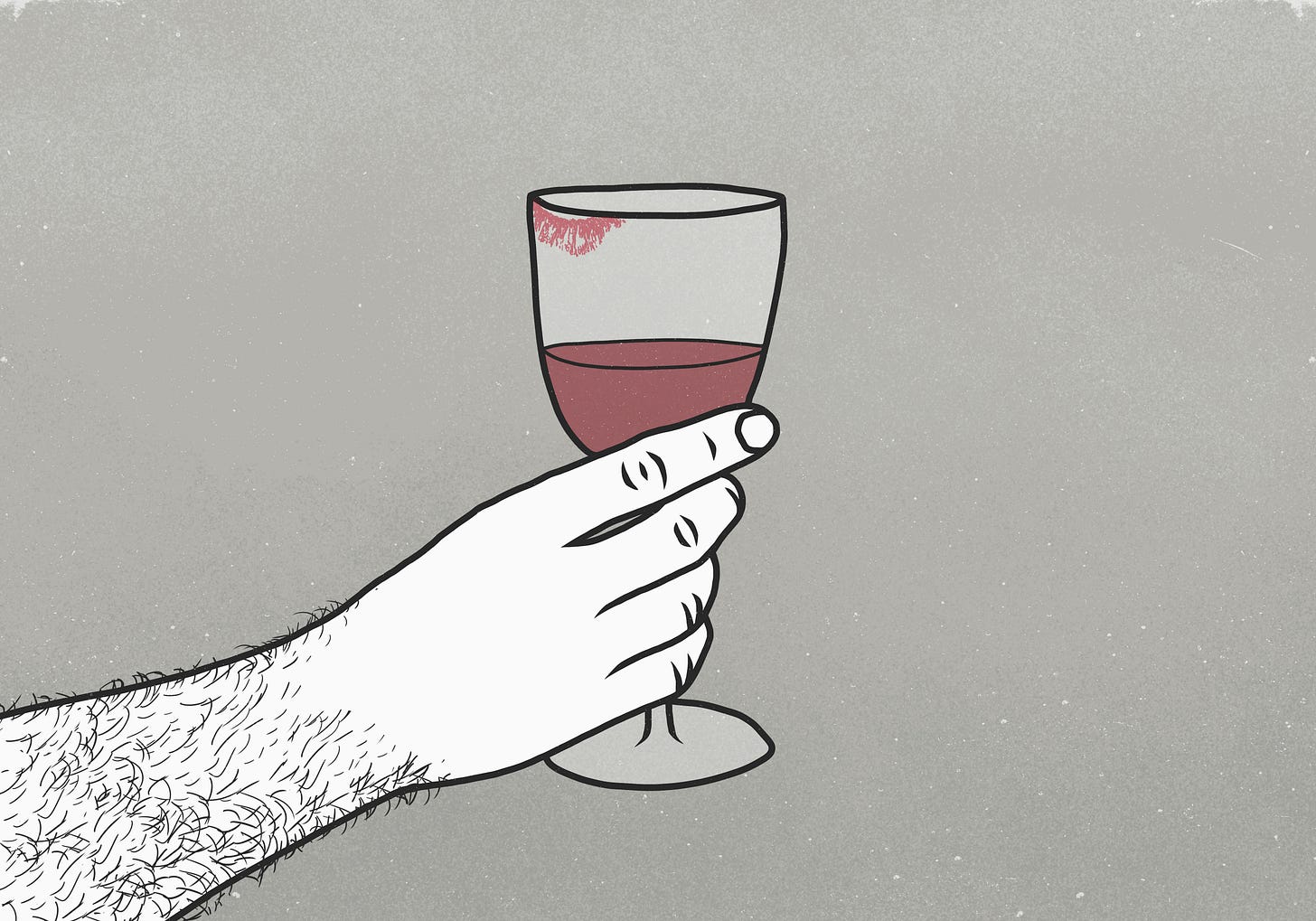A Modest Proposal: Term Limits For Wine Columnists
Oh, look: Another entrenched writer at a legacy publication burped out 1,200 words on their "skepticism" of natural wine. Ho hum.
Ah yes, it must be spring. I say this not because flowers are blooming and the Phillies’ opening day is less than a week away. No, the surest sign of spring in the wine world must be the mainstream articles on natural wine. Maybe this has something to do with the plethora of natural wine fairs happening around the world during springtime? Who knows? In any case, allow me sum up the basic coverage for you: “Natural wine, ever heard it? Apparently, it’s what the kids are drinking these days! What does ‘natural’ even mean? Seems like it means stinky and weird to me. Natural wine, what’s up with that?”
Don’t believe me? The following is from last week’s wine column in the Wall Street Journal:
I’m a self-confessed natural-wine skeptic. I’ve had some natural wines that were pleasant and many that were not. I just don’t get what the fuss is about…
Over the years, I’ve heard various definitions of what makes a natural wine…This is one of my frustrations with natural wine: The more people define it, the more confused I become. The best I can figure, it’s natural if its producer declares it as such.
Yes, this is what passes for wine commentary in one of the nation’s largest-circulation newspapers in 2023. The writer says she’s tasted “some natural wines” that were “pleasant” and others “that were not”? Wow, such insight. You could literally say the same thing about almost everything else one encounters in life.
This column, “A Skeptic’s Tour of New York City’s Natural Wine Bars,” by Lettie Teague is a masterclass in what’s wrong with wine writing. After positioning herself as the “skeptic” who is going to sort out all of this natural wine nonsense for WSJ readers, Teague visits a half-dozen wine bars in Brooklyn and the Lower East Side. She asks a bunch of irritating questions to the bartenders and shades most of the wine she tastes.
At the first stop, Ten Bells, Teague immediately wants an orange wine, which she tastes and dismisses as “tannic and oxidative and kind of gritty—reminding me why I don’t like orange wine.” The purposeful conflating of orange wine with natural wine at large is, for me, always the tell of someone who’s got an anti-natural-wine bias.
Next, Teague tries a Loire gamay, which she claims is “mildly pleasant to start” but then “fell a bit flat, even feral.” She quotes herself as saying, “The more I drink it, the less I like it.” It’s unclear whether she says this to a friend or the bartender, but if it’s the latter I can clearly picture the bartender smiling blankly and suppressing an eye roll. “After half-drinking our wines, we bid good night,” she writes. I am dying to know how much the tip was.
At other stops, Teague runs through the various styles and buzzwords that have come to define natural wine: pet-nat, quevri, et al. At Skin Contact, she tastes a quevri wine that she calls “tannic and, again, almost gritty—interesting, but a bit tiring too.” She expresses her confusion at “challenging” natural wine labels and says, “We liked but didn’t love any of the wines until the last one.”
Teague ends the piece by shading the bartender at The Four Horsemen, presumably because she doesn’t engage in the tedious chitchat that the columnist and her friend require:
“Are all the wines on the list natural?” I asked. “We have over 1,200 wines in the cellar. Maybe 1,150 are natural,” Nicole replied. While the other bartenders had been quite chatty, Nicole* [sic] was all business. “She offers a big pour but she doesn’t like to chat,” my friend observed.
While some of the wines at the bars we visited had been better than others, the welcome had, save for Nicole* [sic], been quite warm.
Woof. Nicolle*, we feel you. You’re doing the lord’s work.
All of which is to say that I would like to propose two things. First, I would humbly suggest that the position of Columnist at Legacy Publication should not carry with it the same lifetime appointment as, say, a Supreme Court justice. I’m picking on Teague here, but there are any number of others in similar positions. As I said in my own farewell post to my spirits column in the Washington Post, a column’s perfect life span feels slightly longer than the career of an NFL running back. At a certain point, six or seven or eight years in, anyone simply runs out of new and interesting things to say.
Secondly, I will suggest the same thing I did last March, in my own natural wine column for this newsletter. Maybe everyone should stop talking so much about natural wine for a few years. Just let it be. Natural wine is great. The discourse around it—pro, con, and otherwise—is what’s tiresome. Natural wine doesn’t need to be defensive or revolutionary anymore. It firmly exists as a category. Natural wine would undoubtedly benefit from a dumb phase. There’s no need at this point to engage with self-described “skeptics” who have already made up their mind about natural wine.
Be like Nicolle.*
**NOTE: After this was published, I learned that Teague could not even get the spelling of the bartender she quotes correct.





I believe her name is Nicolle. Something that a shitbag like LT doesn't bother to learn.
On the natural wine front, I have done my best to ignore both the broadbrush simplistic dismissal of it by my wine friends and the natural/low intervention producers themselves trying to sell me on the story of the winemaking techniques utilized (not much different than in that way than regular producers). I only care about what's in the glass. Is it pleasurable? Is it interesting? Is it showing me something new and worthwhile in the realm of wine? I just continue to call 'em as I see 'em. You talked about natural wine needing a 'dumb phase' and that's a good way to put it. For me, ultimately wine has to give pleasure. As I see it, natural wine is about producers beginning at the opposite end of the scale to "factory wine". They begin with crushed grapes, leave it alone and see what they get. Great! Really, it's great. The results may be strange, they may be boring, they may be great but for me the judgement of that is what is in the glass, not the story of how it got to the glass though I may be interested in that later. Thus, tasting natural/low intervention wine is the same as ever - clear your mind and focus on what your senses bring to you and make your evaluation. I think of Steven Spurrier, whom I was fortunate enough to know a little through some tutored tastings he put on through Christie's in London. He had deep wine knowledge and tasting experience but he also brought fresh curiosity to every wine he tasted, making no assumptions, just tasting what was there and evaluating honestly. I have not gone out of my way to taste natural/low intervention wines but I am enthusiastic about the movement despite the distracting chatter pro and against. I have tasted a bunch. Mostly they were not very pleasurable, some were OK and a few were lovely in an original way and as producers have to sell what they make in order to be able to do it the next year, I expect that many more lovely wines will be made. That's exciting. So yes, a dumb phase would be good. Let the producers do what they are doing for a few years without the general yammering and see what it brings.